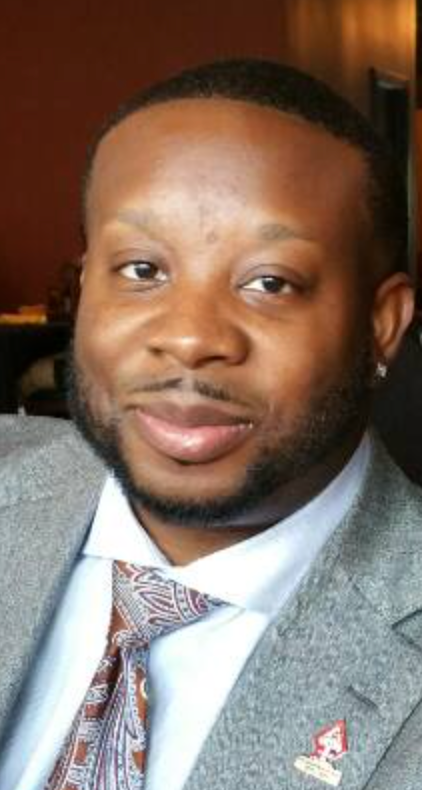Strategically Navigating Your HR Career as a Black Professional: The Power of Coaching
- Prathan Powell

- May 25, 2025
- 5 min read
Updated: Sep 23, 2025

As a Black HR professional, you're already in a unique and powerful position to shape the future of human resources, advocate for diversity, equity, and inclusion, and lead organizations toward more inclusive cultures. But how do you ensure that your career continues to thrive, evolve, and reflect your worth? The answer lies in approaching your career strategically—and leveraging coaching to unlock your full potential.
In this article, we'll explore how Black HR professionals can navigate their careers with intention and purpose, while using coaching as a key tool for personal and professional growth.
1. Own Your Career Path with Strategic Clarity
For too long, many professionals—especially those from historically marginalized communities—have relied on external forces (like an employer or mentor) to dictate the trajectory of their careers. But the truth is, no one is going to drive your career but you. As a Black HR professional, you have the power to set clear intentions and goals that align with your personal values, professional aspirations, and what you want to achieve for the community.
How to Approach It Strategically:
Define Your Vision: What does success look like to you? Do you want to rise to an executive role, become a thought leader in HR, or develop innovative DEI strategies? Identifying where you want to go is the first step in making your career journey more deliberate.
Set SMART Goals: Make sure your goals are Specific, Measurable, Achievable, Relevant, and Time-bound. Break them down into manageable steps that will lead to measurable success over time.
How Coaching Helps:
Coaching allows you to clarify your vision, set those SMART goals, and stay accountable. A coach helps you align your vision with actionable steps and provides insights on overcoming challenges. They can help refine your goals, whether it's negotiating for a better salary or finding the best way to showcase your unique value in the workplace.
2. Cultivate a Growth Mindset
Having a growth mindset means embracing challenges as opportunities for growth, learning from criticism, and persisting through obstacles. For Black HR professionals, cultivating a growth mindset is essential to thriving in an environment that may not always value your contributions as much as they should. A growth mindset empowers you to take risks, stretch outside your comfort zone, and continually develop your skills.
How to Approach It Strategically:
Invest in Continuous Learning: Stay on top of industry trends, HR innovations, and leadership strategies. This includes keeping current with HR certifications, DEI best practices, and technological advancements in the field.
Embrace Feedback: Be open to feedback from colleagues, managers, and mentors. Use it as a tool for self-improvement rather than a sign of inadequacy.
Challenge Your Own Biases: As HR professionals, it’s critical to reflect on your own biases and how they may influence your work. Cultivating a growth mindset involves confronting these biases and working toward more inclusive leadership.
How Coaching Helps:
Coaching encourages self-reflection, helping you recognize areas for growth while also celebrating your successes. Coaches can guide you through tough feedback and challenges, teaching you how to turn them into opportunities for growth. With a coach, you’ll develop the resilience and mental agility needed to tackle the ups and downs of your career with confidence.
3. Leverage Coaching to Navigate Career Transitions
The HR field is vast, with opportunities ranging from recruitment to talent development to executive leadership. As a Black professional, you may also face unique challenges that come with navigating career transitions, whether it’s advancing to the next level, moving into a new HR specialty, or managing leadership changes.
How to Approach It Strategically:
Identify Opportunities for Growth: When considering a career transition, ask yourself: What do I want to do next? Is it a higher-level position? A new skill set? A role that brings greater influence? Identify opportunities that align with your long-term goals.
Create a Transition Plan: If you're considering a job change or promotion, put together a structured plan to make that transition smooth. Take note of the skills you’ll need to develop and the networking you’ll need to do.
How Coaching Helps:
Coaching is a great tool during career transitions. A coach helps you navigate the complexities of career shifts by offering guidance on everything from resume revisions and job search strategies to negotiating new roles or adjusting to leadership responsibilities. A coach will also provide an outside perspective, helping you identify any potential blind spots or skills gaps that may need to be addressed.
4. Develop Your Personal Brand and Network Strategically
In today’s HR landscape, a strong personal brand and professional network are just as important as technical skills. Developing your personal brand as a Black HR professional can position you as a thought leader, advocate for diversity, and an influencer in the HR space. But, how do you do that strategically?
How to Approach It Strategically:
Leverage Social Media: Use LinkedIn, Twitter, and other professional platforms to share your knowledge, experiences, and perspectives. Write articles, participate in conversations, and showcase your expertise.
Network with Intention: Attend industry events, both in-person and virtually, and make a point to connect with others in the HR space. Aim for meaningful relationships over superficial networking.
How Coaching Helps:
Coaches can help you define and refine your personal brand. They’ll provide insight on how to market yourself authentically and how to leverage your strengths to build a strong reputation. Coaching also opens doors to networking strategies, giving you the tools to make those relationships impactful and long-lasting.
5. Focus on Negotiation Skills and Leadership Presence
As Black HR professionals, you are often required to not only negotiate on behalf of others but also advocate for your own worth. Negotiation is more than just about securing better salaries—it’s about positioning yourself as a strategic, indispensable leader in your organization.
How to Approach It Strategically:
Negotiate with Confidence: Don't be afraid to advocate for your value. Know your worth, and don't shy away from negotiating for a competitive salary, promotion, or role that aligns with your career goals.
Cultivate Leadership Presence: Leadership is more than managing people; it’s about showing up as a confident, strategic, and authentic individual. Develop a leadership presence that commands respect and inspires others.
How Coaching Helps:
Coaching is invaluable when it comes to negotiation and leadership development. Coaches help you craft your narrative, develop negotiation tactics, and refine your leadership style. They will give you the tools and confidence to enter high-stakes negotiations, whether it’s for a new role or an internal promotion, and come out with the results you deserve.
Conclusion:
For Black HR professionals, leveraging a strategic approach to your career paired with coaching can be the key to unlocking your full potential. Coaching serves as a powerful tool to help you navigate the complexities of HR, overcome unique challenges, and position yourself as a leader who operates from a place of strength and power.
As you continue your journey, remember: You have the power to shape your career, influence others, and lead with intention. Take the reins—get clear on your goals, invest in continuous growth, and leverage coaching to navigate your path with confidence and strategy. Your best year as an HR professional starts now.




Comments